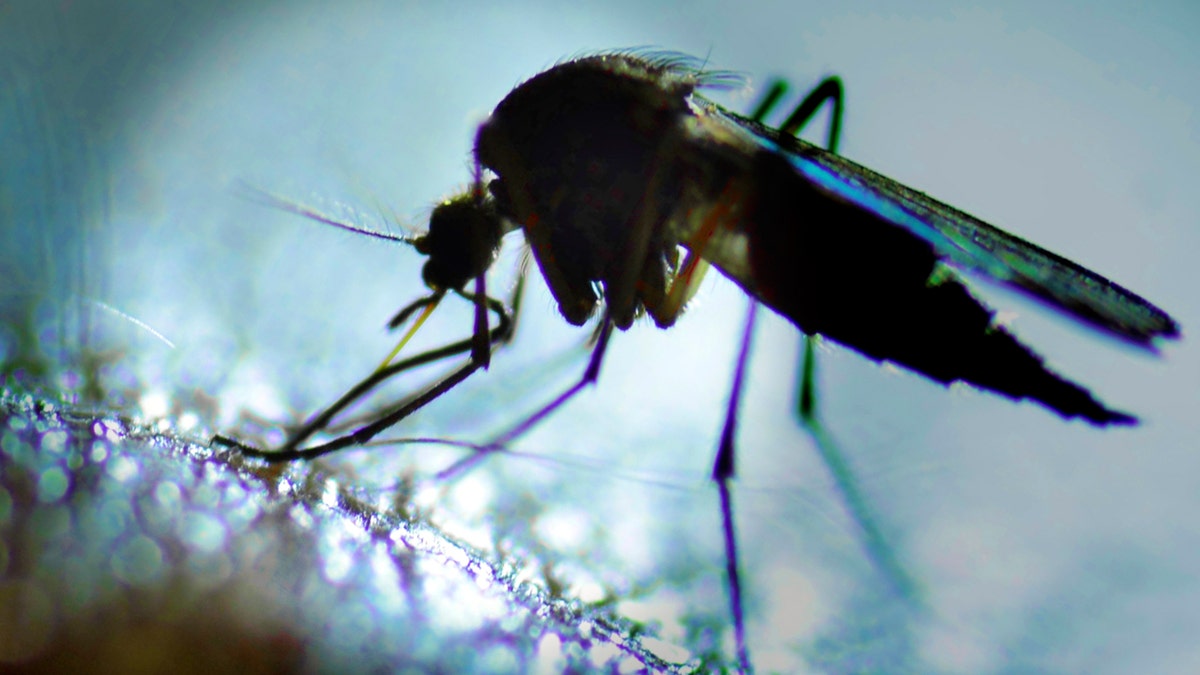
mosquito (Rolf Aasa Taby;)
A man in Spain may have passed the Zika virus to his wife through sex, even though he'd previously had a vasectomy, according to a new report of the case.
The 53-year-old man and his 51-year-old wife had gone on vacation to the Maldives islands in the Indian Ocean in early February this year, the report said. They spent 10 days on the islands, and returned to Madrid in mid-February. They both got mosquito bites on the trip.
A few days after their return, the man developed symptoms of Zika infection, including a fever, rash, headache and joint pain, which went away after about a week. When the man had nearly completely recovered from the infection, the couple had unprotected sexual intercourse.
In men who've undergone a vasectomy, sperm from the testes cannot make their way into semen. These men still ejaculate semen during sex, but the semen contains no sperm. (Sperm are men's reproductive cells, whereas semen is usually a mixture of sperm and other fluids.)
More From LiveScience
A week later, (which was two weeks after the man first showed symptoms), the woman also developed symptoms of Zika.
Doctors tested blood and urine samples from the husband and wife, as well as the husband's semen. The woman's urine sample tested positive for Zika virus, as did the man's semen sample.
It's likely that the man became infected from a mosquito bite he got when the couple was in the Maldives. Zika is primarily transmitted by mosquitoes, and mosquitoes infected with Zika are known to be present in the Maldives, according to the Centers for Disease Control and Prevention.
But the woman didn't develop symptoms until 18 days after she returned from the trip. For a Zika virus infection, this incubation period (or the time it takes a person to show symptoms after he or she is infected) would be "exceptionally long," the researchers said. It's thought that the incubation period for Zika is between three and 12 days, according to the European Centre for Disease Prevention and Control.
It's unlikely that the woman was infected by a mosquito bite she got in the Maldives, and this means that sexual transmission "is definitely a possibility" in the woman's case, the report said. It's the first time that possible sexual transmission of Zika virus from a man with a vasectomy has been reported, the report said.
Doctors were able to detect infectious Zika virus in the man's semen up to 69 days after he first showed symptoms. This is the longest time period that infectious Zika virus has been detected in semen, the report said.
This case suggests that, rather than hiding exclusively in sperm, the Zika virus may be present in other fluids that make up semen, such as fluid from male reproductive glands, or pre-ejaculate secretions, the report said.
"Public health recommendations to prevent sexual transmission of Zika virus should take these data into consideration," and should recommend use of protection during sex after travel to an area with Zika, even if a man has had a vasectomy, the report said.
The World Health Organization currently recommends that men and women returning from areas with Zika transmission should use protection for at least six months after their return.
Original article on Live Science.
Copyright 2016 LiveScience, a Purch company. All rights reserved. This material may not be published, broadcast, rewritten or redistributed.








































